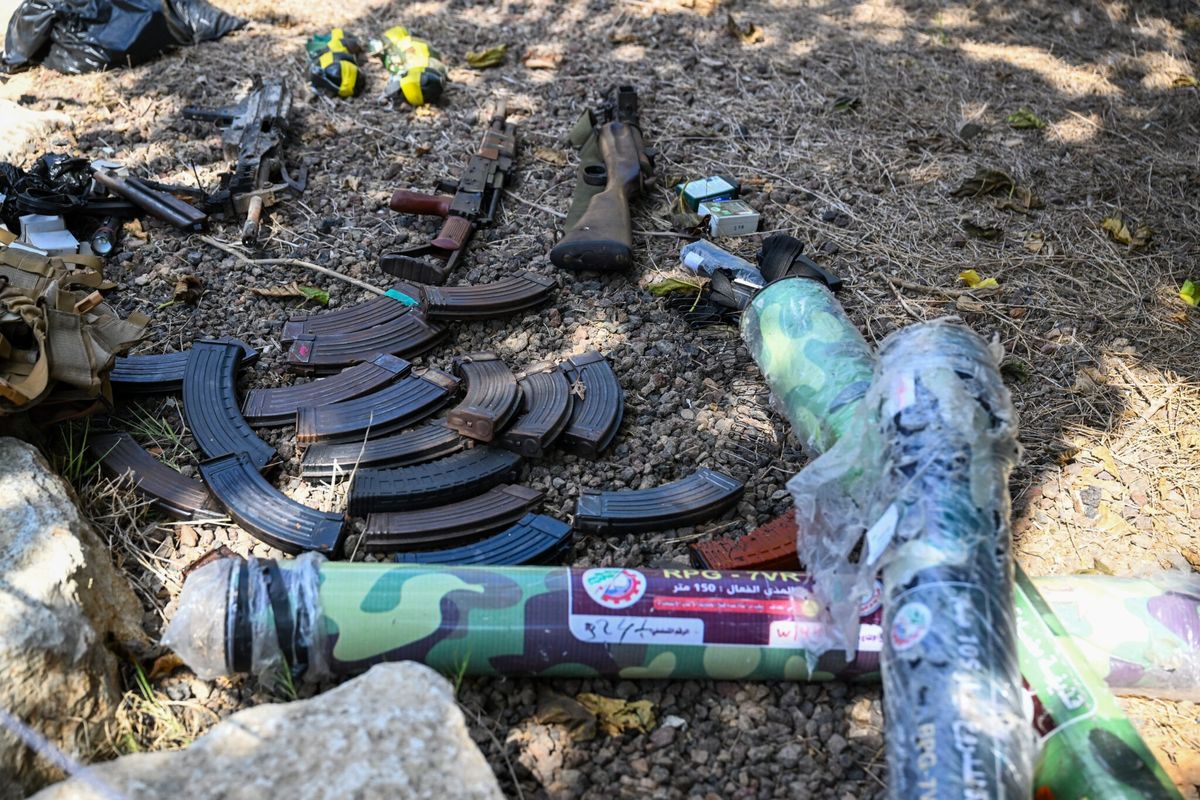U.S. President Donald Trump arrives in Saudi Arabia Saturday with a packed agenda. He will conclude a $109.7 billion arms agreement with Riyadh, discuss opportunities for enhanced U.S.-Saudi economic cooperation, and address the leaders of over 50 Muslim-majority countries at the Arab-American-Islamic summit, which Riyadh hosts Sunday. While many leaders will jostle for time with Trump, he should give priority to a sideline meeting with Egyptian President Abdel Fatah al-Sisi and use that meeting to press two key concerns.
First, Trump should focus on Egypt’s continued struggles against ISIS-affiliated jihadists in the Sinai, and encourage Sisi to accept greater U.S. counterinsurgency assistance. According to U.S. estimates, during the past four years, over 2,000 Egyptian soldiers have been killed while battling a terrorist group of roughly 1,000-1,500 members. Moreover, in recent months, ISIS militants have driven hundreds of Christians from the northern Sinai city of El-Arish and established checkpoints in the area. ISIS also claimed responsibility for the Palm Sunday attacks on Coptic churches in Alexandria and Tanta, in which 45 people were murdered.
One positive development in Egypt’s fight against ISIS has been the increased participation of Sinai-based tribes in the effort to combat the group. However, Sinai’s second-largest tribe has reportedly conditioned its involvement in the campaign on the formation of a central tribal command. In other words, sustainable progress requires the Egyptian military to end its conventional military approach in the Sinai and instead implement a counterinsurgency strategy in which it mobilizes and organizes local stakeholders against the terrorists. This is where Washington can help. Trump should ask Sisi to schedule a resumption of Operation Bright Star – a series of joint exercises held by the U.S. and Egypt – and make counterinsurgency training a focal point.
Second, Trump should ask for Sisi’s help in closing Case 173 – a legal case stemming from the December 2011 closure of four U.S.-funded, pro-democratic organizations and the subsequent conviction of 43 employees, including 16 Americans who were sentenced to prison in absentia in June 2013. Despite the tremendous tension that these convictions caused in U.S.-Egyptian bilateral relations, Cairo claimed that Egypt’s president could not issue a pardon until the appeals process ran its course. For this to occur, the defendants would need to appear in Egypt, file an appeal, and risk imprisonment during the process – something that the defendants were, quite understandably and correctly, unwilling to do.
Under Egypt’s new criminal code, however, issued in late April, the defendants can file appeals in absentia through their attorneys, and Sisi can then pardon them if they are convicted again on appeal. Trump should ask Sisi to commit to doing exactly this if the defendants file their appeals in absentia. Separately, Washington should assist the defendants with their legal fees, since they were convicted while doing work that the U.S. government was funding and encouraging at the time.
Of course, Trump’s meeting with Sisi will mean renewed criticism in Washington of the Administration’s coziness with an autocratic leader. However, Trump’s welcoming of Sisi to the White House last month produced an immediate result: the release of U.S. citizen Aya Hijazi, as well as seven other aid workers who were being detained on politicized charges. By using another engagement with Sisi to press for more tangible progress in the bilateral relationship, Trump can demonstrate that his rapport with Sisi is producing results. And perhaps Trump can entice Sisi to cooperate on the Sinai and Case 173 by reiterating the carrot that he dangled during their recent phone call – a visit to Cairo once these matters are resolved.














